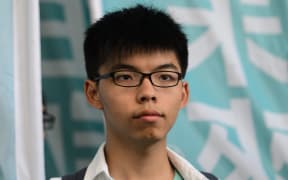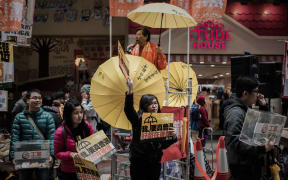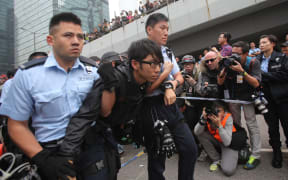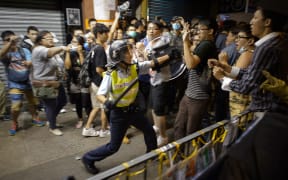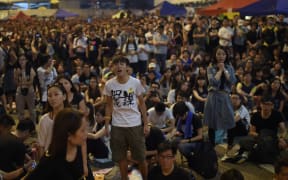A new generation of pro-democracy activists have won seats on Hong Kong's Legislative Council (LegCo).
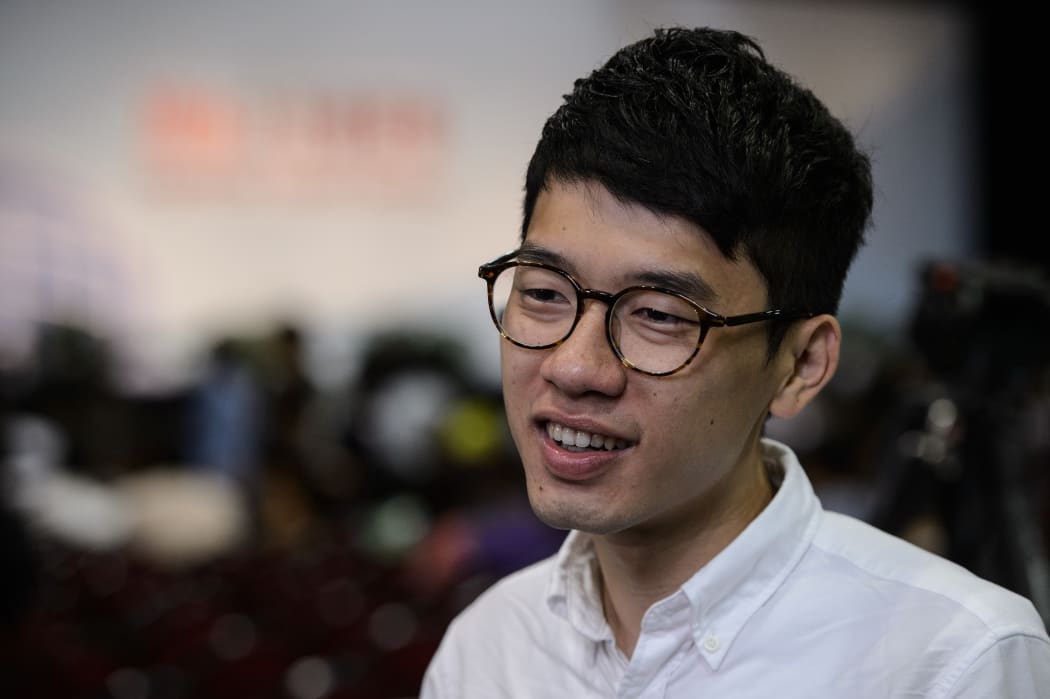
Nathan Law, 23, who helped lead self-determination protests in 2014 is one of those elected. Photo: AFP
The young leaders want greater autonomy and changes to the way Hong Kong is governed by China. Voter turnout reached a record high of 58 percent.
Among those elected is Nathan Law, 23, who helped lead the "Umbrella Protests" in 2014 for self-determination.
Despite the gains, China's supporters will continue to hold the majority of seats on the 70-seat council.
Mr Law expressed shock at the result, saying it showed people "wanted change".
There has been no reaction yet from the Chinese government in Beijing.
A delay in releasing preliminary results had caused some concern. Full results are due later on Monday.
What do the activists want?
The election is the first in the territory since the 2014 unrest, when central areas of Hong Kong were paralysed for weeks by mostly young protesters.
They were demanding greater democracy for the territory amid concerns that Beijing was increasingly interfering in the politics of the former British colony, breaking the "one country, two systems" agreement.
Beijing denies this, and gave no concessions to the protesters.
"I think Hong Kongers really wanted change," Mr Law, 23, was quoted as saying by the AFP news agency. "Young people have a sense of urgency when it comes to the future."
Mr Law, whose Demosisto party campaigns for the right to self-determination, had the second highest number of votes in the multi-seat Hong Kong Island constituency.
Two candidates from the Youngspiration party, a more vocally pro-independence movement which also has its roots in the Umbrella Protests, were also on course to be elected.
However, several veteran democrats failed to retain their seats.
"People want change, change meaning that they want new faces... but the price is a further fragmentation [of the pro-democracy camp]," defeated candidate Lee Cheuk-yan told Reuters.
Will these results change anything?
Mr Law warned that pro-democracy legislators would "have to be united to fight against the [Chinese] Communist Party".
Importantly for Mr Law and his allies, democrats have retained one third of seats in the council - meaning they have the ability to veto major constitutional changes.
There will also be more radical voices in the LegCo, with at least six young candidates who support self-determination for Hong Kong occupying seats.
What will China think?
There has so far been no official comment from the authorities in Beijing.
However, the Hong Kong government's Secretary for Constitutional Affairs Raymond Tam said it would do its best to "bring them [radical activists] around to a more centrist position".
"Independence is not realistic at all," said Elizabeth Quat, a member of a pro-Beijing party. "Hopefully this will not be their main objective."
The Chinese government has consistently denounced pro-democracy protests, calling the 2014 street occupations "illegal", and stressed that unity is the way forward for the country.
How does the electoral system work?
Candidates were competing for the 70 seats on the LegCo, which passes laws and budgets in the territory. But only 35 constituency seats are directly elected by the 3.8 million registered voters.
Another 30 seats, called "functional constituencies", represent particular professions or trades and only people connected to those professions or trades can cast votes for those seats.
That is about 6 percent of the population, and they are mostly Beijing-leaning.
Representatives for a further five functional constituencies, known as "super seats" are chosen by voters across the territory.
The vote does not elect Hong Kong's chief executive, the head of government, but many analysts believe the outcome could have an impact on whether China supports current leader CY Leung for a second term in office.
- BBC
